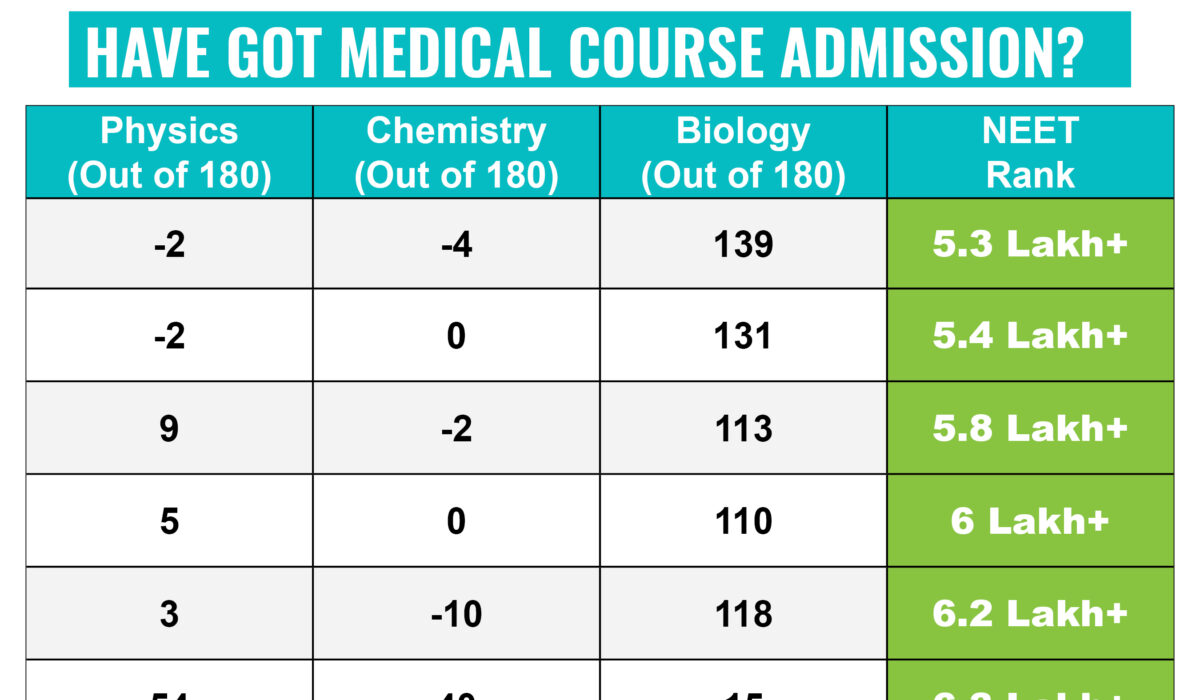In 2017, at least 400 students got single-digit marks in physics and chemistry and 110 students scored zero or negative marks in NEET. However, these students were admitted in private medical colleges. If getting zero in these main subjects does not make an applicant ineligible for admission, then what is the need for NEET?
It is to be noted that the announcement to adopt a common entrance examination had stipulated that students should score a minimum of 50% in the particular subjects. However, the later announcement had brought in the percentile system which was further dropped the stipulation on marks in respective subjects. Rus Education analyzed the subject marks of 1,990 students who got admitted to MBBS with NEET scores of less than 150 out of 720 in 2017. We found 530 applicants with single-digit marks, zero or less in physics or chemistry or even both.
There were many such instances among those who were admitted in MBBS courses with aggregate marks above 150. Out of these 530, 507 were admitted in private medical colleges. The average tuition fees paid by the students were nearly Rs. 17 lakh per annum excluding the hostel, mess, library, and other miscellaneous charges. This is how rich students with abysmal NEET marks have been able to buy their seats in medical colleges. NEET, a merit-based selection was meant to prevent exactly this situation.
Nearly half of these applicants are in deemed universities that would be free to conduct their own final MBBS examination. Once cleared, these exams would allow their students to register as well as practice as doctors.
NEET was first introduced in December 2010 as a gazette notification via the Medical Council of India. It was then administered by the government-appointed Board of Governors. The announcement specified that eligibility criteria for MBBS would be by acquiring a minimum of 50% of marks in the case of the general category and 40% in the case of the reserved category.
However, later MCI notification in February 2012 not only changed the eligibility criteria from 50% and 40% to 50th and 40th percentile but also did away with minimum marks in each paper. In 2016, when the Supreme Court reversed its earlier order to pave the way for NEET to be implemented, it effectively revised this notification.
Dr. K.K. Talwar who headed the BoG in the year 2012 explained to TOI that faced stiff resistance to NEET from state governments, the focus then was on finding a way to get NEET accepted. “If NEET results over the years show that the percentile cut-off is too low, or that minimum marks need to be fixed, there is nothing stopping the MCI from making necessary amendments,” said Dr. Talwar.




